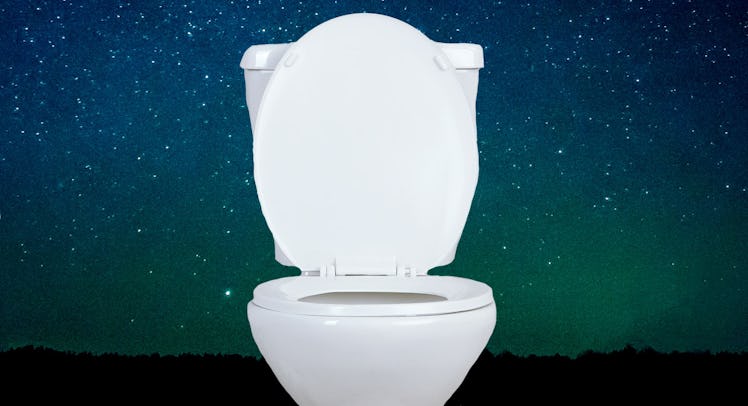Waking Up at Night to Pee is Costing Us $44.4 Billion
Waking up more than twice a night is costly for everyone, economists warn.

Pregnant moms who wake up more than twice each night to pee may have lower life satisfaction, lower engagement at work, and similar health problems to people who do not sleep at all, according to a new study. The findings suggest that the urge to wake up more the twice a night to urinate, otherwise known as nocturia, takes an expensive toll on job performance and well-being—potentially costing the U.S. economy more than $44 billion each year.
“We were very surprised that getting up at night to go to the bathroom shows any statistically significant association with workplace productivity, after you take into account all the other potential factors associated with productivity,” study coauthor Marco Hafner, a senior economist at the nonprofit organization RAND Europe, told Fatherly. “This association is particularly strong for individuals reporting two or more voids per night, which represents in the data a critical threshold after which it starts to affect individuals in a negative way.”
As a rule, economists estimate that insufficient sleep costs the U.S. economy about $411 billion a year, or about 2.28 percent of the GDP, and there’s evidence that sleep deprivation is on the rise. A bulk of the research looks at the number of hours lost; poor quality of sleep is a factor seldom considered. Hafner and colleagues suspected that nocturia, known for keeping many men and women (especially pregnant women) up at night, could impact sleep quality even among those who otherwise get enough hours of rest.
To confirm this, Hafner and his team created a macroeconomic model based on a review of literature on the prevalence of nocturia, as well as data from Britain’s and Asia’s Healthiest Workplace surveys, a standardized survey of over 150,000 people the U.S., Japan, Germany, the UK, Spain, and Australia. They found that nocturia affects about 12.5 percent of the working population in America, and that those who woke up to pee more than twice at night have lower life satisfaction, lower engagement at work, and similar health problems to people who do not sleep at all, such as hypertension, cardiovascular disease, and asthma. Together, this added strain contributes $44.4 billion to economic losses annually in the U.S.
And it’s not just about pregnant women, or older individuals with bladder control problems. “The study shows it’s not only an issue that potentially affects pregnant women, it also affects not only those over 50 years of age but also more generally individuals aged 18 to 30, both, women and men,” Hafner says.
Although nocturia can indicate an underlying medical condition (or pregnancy), it is often simply the result of drinking too much water before bedtime. Many people can avoid the negative consequences of poor sleep quality by simply cutting fluid intake before bed. “I had interesting discussions with family members and friends where suddenly people reveal that they may have similar issues but never really thought it could be a health or lifestyle issue, or are not very comfortable talking about it,” Hafner says.
“Changes in lifestyle can make a huge difference.”
This article was originally published on